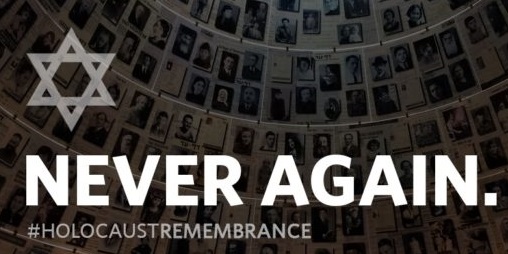
You may have recently seen news reports about a principal in the Palm Beach area who suggested that because there were those that question the Holocaust, he had to be ‘neutral’ in any instruction or approach to learning about the Holocaust. This principal has since been reassigned and the district has recommitted itself to improving instruction on the Holocaust, as mandated by Florida statute.
Senator Marco Rubio plans on introducing the ‘Never Again Act’ which will “help states obtain resources from the U.S. Department of Education to teach students about the Holocaust.” This can only be a good thing. But it also reflects the position of both the Florida Council for the Social Studies and the National Council for the Social Studies that more and better resources must be provided to ensure adequate instruction about the Holocaust. Last year, the Florida Council submitted to NCSS the following resolution, intended to prevent errors in judgement as seen in Palm Beach:
Resolution # 18-03-1
Advocating Improved Holocaust Education and the Provision of Necessary Resources
Sponsor: Florida Council for the Social StudiesCo-Sponsors: Colorado Council for the Social Studies, Connecticut Council for the Social Studies, Wisconsin Council for the Social Studies, Human Rights Education Community
Rationale: Recent events in Florida, Virginia, and elsewhere in the United States have raised questions about the ways in which we as educators approach and teach the events of the Holocaust.1
As of 2017, only eight states mandate instruction on the Holocaust, and increasingly we as citizens and educators are losing access to those survivors and eyewitnesses, living primary sources who can serve as resources for education and remembrance.2
Research suggests that in some cases, when it is taught, the approach often focuses on shock value and shallow interpretations rather than roots and policies. At the
same time, the Holocaust is often approached as a “controversial issue” that requires “balance.”3
As social studies educators, we have an obligation to understand what we are teaching to
confront the facts of events like the Holocaust. Educators must be knowledgeable, understand the purpose and function of Holocaust education, and use age-appropriate materials to ensure that students gain a comprehensive understanding of
this dark time in world history.4WHEREAS: anti-Semitic acts of violence are on the rise in the United States, reaching nearly 2,000 unique events in 2017, according to the Anti-Defamation League 5; and
WHEREAS: in contradiction to the limited state policies that do exist, some district and school administrations throughout the country have suggested that educators approach the Holocaust as a “controversial issue” that requires “balance,” while general knowledge about the Holocaust continues to decline; and
WHEREAS: a number of excellent, proven, and grade level appropriate resources exist for teaching about the Holocaust; and
WHEREAS: the National Council for the Social Studies (NCSS) has an obligation to support accurate quality instruction and to support members in the field;
NOW, THEREFORE, BE IT RESOLVED: that NCSS support the teaching of the Holocaust as an absolute fact without mitigating circumstances that require a consideration of “balance”; establish a clearinghouse of resources and instructional tools on socialstudies.org that can be used to teach about the Holocaust; support professional development opportunities that will improve teacher understanding of the Holocaust; and support a 50-state effort to mandate quality K-12 Holocaust education.
Notes
1. Colleen Wright and Marlene Sokol, “What Teachers Can and Can’t Say. Did a
Citrus County Educator’s Podcast Cross the Line?” Tampa Bay Times (March
6 2018), http://www.tampabay.com/news/education/k12/What-teachers-can-and-can-tsay-Did-a-Citrus-County-educator-s-podcast-cross-the-line-_166092840 and Emma
Green, “Why the Charlottesville Marchers Were Obsessed with Jews,” The
Atlantic (August 15, 2017), http://www.theatlantic.com/politics/archive/2017/08/nazisracism-charlottesville/536928/
2. New Campaign Seeks to Mandate Holocaust Education in all 50 States, www.
notthelastbutterfly.com/50-state-initiative.html
3. Louis Llovio, “Teaching the Complexities of the Holocaust a Challenge for
Teachers,” Richmond Times-Dispatch (Oct. 25, 2015), http://www.richmond.com/news/
local/education/city-of-richmond/teaching-the-complexities-of-the- holocaust-achallenge-for-teachers/article_83ad4ee0-a0b9-5646-a644-6e7abfd37f08.html;
Aleksander Kwasniewski, “On Holocaust Education” Opinion, The New York
Times (June 28, 2010), http://www.nytimes.com/2010/06/29/opinion/29iht-edcounter.
html and Maggie Astor, “Holocaust Is Fading From Memory, Survey Finds,”
The New York Times (April 12, 2018), http://www.nytimes.com/2018/04/12/us/
holocaust-education.html.
4. D. Lindquist, “A Necessary Holocaust Pedagogy: Teaching the Teachers,” Issues
in Teacher Education 16, no. 1 (2007): 21–36. https://files.eric.ed.gov/fulltext/
EJ796255.pdf
5. 2017 Audit of Anti-Semitic Incidents, http://www.adl.org/resources/reports/2017-auditof-anti-semitic-incidents
As the resolution suggests, social studies teachers in Florida are dedicated to teaching the Holocaust as it deserves to be taught, and we must be clear that this is not an issue that requires ‘balance’ in instruction. Rather, it is an evil to which we say “Never Again”, and that “Never Again” can only be achieved through proper instruction, preparation, and resources, both in Florida and nationwide.

 New ideas often get a skeptical response, and participatory budgeting (PB) is no exception. One common doubt: while PB may be admirable, unfortunately governments just can’t afford it.
New ideas often get a skeptical response, and participatory budgeting (PB) is no exception. One common doubt: while PB may be admirable, unfortunately governments just can’t afford it. We are excited to announce that we will be kicking off something new this July – an online course in starting a Ben Franklin Circle! (New to Ben Franklin Circles? Visit our homepage.)
We are excited to announce that we will be kicking off something new this July – an online course in starting a Ben Franklin Circle! (New to Ben Franklin Circles? Visit our homepage.)
 Saturday, July 6th
Saturday, July 6th Tuesday, July 9th
Tuesday, July 9th
 Wednesday, June 10th
Wednesday, June 10th Wednesday, July 17th
Wednesday, July 17th